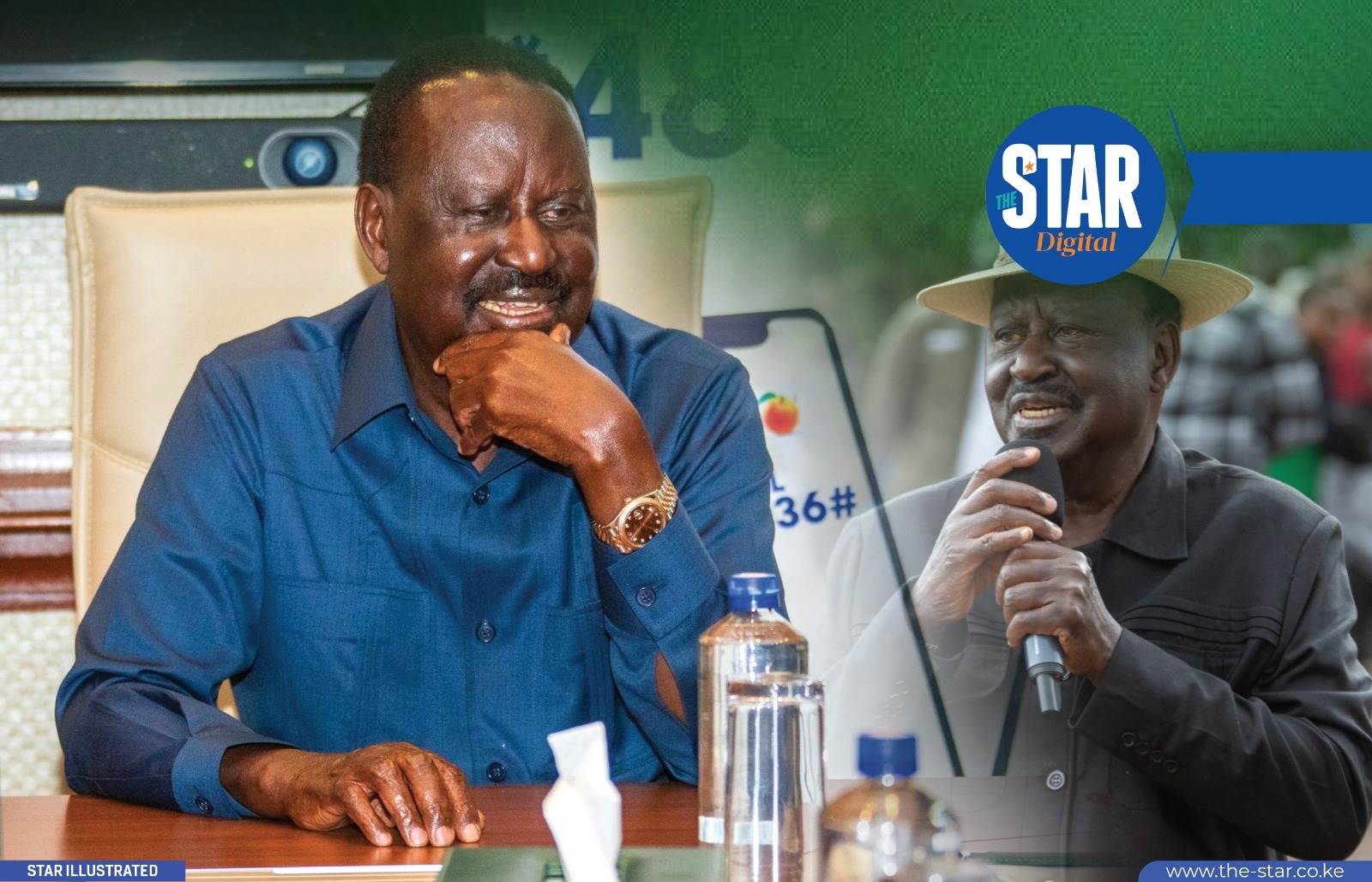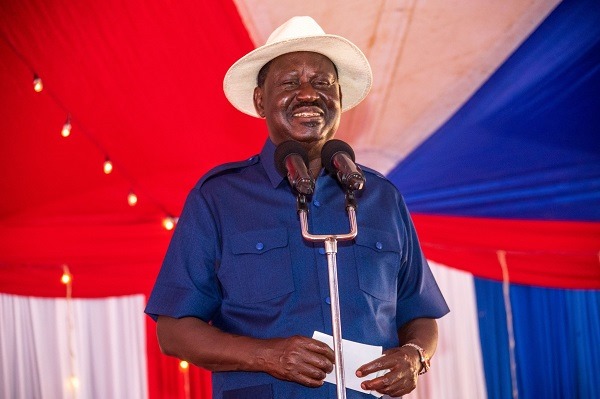
Some of the names Kenyans gave Raila
His political unpredictability and masterful strategy earned him the title Agwambo, the "mysterious one."
Among his most memorable trademarks was the famous line, “Kitendawili… tega!”—a cue that a riddle was coming.
In Summary

Audio By Vocalize

Raila Odinga, Kenya’s long-serving opposition leader and former Prime Minister, was not only known for his political resilience and reformist spirit but also for his unmatched sense of humour and love for wordplay.
Over his decades in politics, Raila used jokes, riddles, and cultural metaphors to communicate serious political messages in ways that entertained and united crowds across the country.
Among his most memorable trademarks was the famous line, “Kitendawili… tega!”—a cue that a riddle was coming.
During the 2017 election campaigns, Raila often used this phrase to introduce coded political messages that thrilled his supporters.
In one rally in Busia, he narrated a riddle about someone who “ran naked at night, got tired, and fell asleep,” only to wake up in great shame the following morning. The crowd erupted in laughter when he concluded, “That person is a witch, that person is Jubilee. They have slept for four years doing nothing.”
In another rally in Kisumu, he told a story of a cat that turned wild and began eating chickens, again a humorous way of criticising his political opponents.
These riddles became a central feature of his campaign trail—cleverly entertaining his audiences while delivering sharp political commentary. Raila’s jokes often carried deeper meaning, serving as tools of both persuasion and satire.
During the 2019 Kibra by-election campaigns, he humorously likened Jubilee Party’s candidate McDonald Mariga’s manifesto to “body hair,” drawing loud laughter from the crowd.
He explained that body hair might appear fancy but serves no real purpose—a symbolic dismissal of his rival’s campaign promises.
The analogy, typical of Raila’s style, helped him turn ridicule into a political weapon while still keeping the mood light. At national functions, Raila used humour to reflect on culture and language.
During the Mashujaa Day celebrations at Mama Ngina Waterfront in Mombasa in 2019, he delivered one of his most quoted jokes when he described the life and death of the Swahili language.
“Swahili was born in Pate, grew up in Zanzibar, matured in Tanzania, got sick in Kenya, died in Uganda, and was buried in Rwanda,” he said, sending the crowd into laughter.
Beneath the joke was a subtle message about the need to preserve and promote Kiswahili as a shared cultural identity across the region. Raila also had a unique way of connecting with younger Kenyans through humour. During the 2017 campaigns, his “Journey to Canaan” slogan inspired countless internet memes.
When asked whether even “Team Mafisi”—a popular slang for flirtatious men—would enter Canaan, Raila burst into laughter and replied, “Mafisi… yea!” The lighthearted moment showed his ability to embrace jokes about himself and his campaign, turning viral humour into a bridge between politics and youth culture.
Even in solemn moments, Raila’s humour found a way to emerge naturally. During the burial of former President Daniel arap Moi, he famously chanted “Jowi! Jowi! Jowi!”—a traditional Luo mourning cry that resonated across the ceremony.
Days later, when murder suspect Joseph Irungu, popularly known as “Jowie,” was released on bond, Kenyans flooded social media with jokes linking the two events.
Raila laughed off the coincidence, showing his trademark ability to find humour even in situations that stirred public speculation.
He also used wit as a form of political defense. In October 2017, responding to critics who hurled insults his way, Raila quipped that attacking him was like “pinching a donkey’s buttocks”—a vivid Kiswahili metaphor meaning that those who provoked him should expect a strong reaction.
The remark, both humorous and defiant, drew cheers from his supporters and reflected his resilience in the face of political hostility.
Throughout his long political career, Raila Odinga’s humour remained one of his most defining traits. His jokes and riddles were more than entertainment—they were instruments of communication, persuasion, and connection.
They helped him translate complex political issues into relatable stories and cemented his image as a leader who could laugh with the people even amid adversity. In life, Raila’s wit humanised his politics; in memory, his laughter continues to echo in Kenya’s political history as a reminder of the power of words to inspire, disarm, and unite.

His political unpredictability and masterful strategy earned him the title Agwambo, the "mysterious one."